Our research strategy focuses on maintaining world-class excellence in our core engineering disciplines, maintaining or establishing world-class facilities, hiring and developing outstanding academic staff, and attracting the best research staff and students.
We will build on our track record of multi- and trans-disciplinary research, focussing on global challenges where we are advantaged through our expertise, facilities and/or partnerships. We are actively developing new research opportunities in the following areas:
- Transition to a sustainable zero-pollution economy
- Engineering resilient and secure infrastructure
- AI and machine learning for engineering applications
- Affordable technologies for an ageing society
To find out more about our strategy, read the Faculty of Engineering Five Year Strategic Plan.
Transition to a sustainable zero-pollution economy: case studies
RAEng Chair in Emerging Technologies for Professor Magda Titirici (Chemical Engineering)
Read the news story: "Professor named Royal Academy of Engineering Chair in Emerging Technologies"
 Professor Magda Titirici will develop sustainable future energy technologies, particularly new kinds of batteries to replace Lithium, clean and low-cost production of Hydrogen from biomass or plastic waste and its use in fuel cells free from precious metals. These technologies will enable more use of renewable energy in future, from grid-balancing for intermittent energy supply to producing customized compostable electronics.
Professor Magda Titirici will develop sustainable future energy technologies, particularly new kinds of batteries to replace Lithium, clean and low-cost production of Hydrogen from biomass or plastic waste and its use in fuel cells free from precious metals. These technologies will enable more use of renewable energy in future, from grid-balancing for intermittent energy supply to producing customized compostable electronics.
Reduced Energy Recycling of Lead Acid Batteries (RELAB) led by Dr David Payne (Materials)
See more details about the RELAB grant
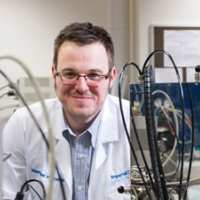 The main objective of the project is to develop a new electrochemical technology for lead-acid battery recycling based on a solution-based processing.
The main objective of the project is to develop a new electrochemical technology for lead-acid battery recycling based on a solution-based processing.
Holistic integration of technology, design and policy for a greener plastic future led by Professor Jason Hallett (Chemical Engineering)
Read more at the project website
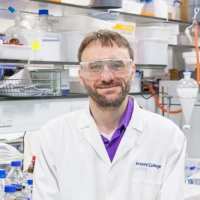 This EPRSC-funded programme aims to create a technical, socio-economic and policy roadmap for how the UK can prevent waste plastics from entering the environment.
This EPRSC-funded programme aims to create a technical, socio-economic and policy roadmap for how the UK can prevent waste plastics from entering the environment.
CBET-EPSRC - Grown Engineered Materials (GEMs): synthetic consortia for biomanufacturing tunable composites, led by Professor Tom Ellis (Bioengineering)
Read more details about the CBET-EPSRC grant
 Using a synthetic biology approach, this breakthrough project will develop and demonstrate the first generation of GEMs, producing these by co-cultivating a set of engineered microbes that we have demonstrated can be grown together as a stable consortium. GEMs will be produced in vivo in the precise, sustainable way that materials are made by nature - with cells working together at the micro scale to grow different polymers in parallel that interact to form self-patterned composites.
Using a synthetic biology approach, this breakthrough project will develop and demonstrate the first generation of GEMs, producing these by co-cultivating a set of engineered microbes that we have demonstrated can be grown together as a stable consortium. GEMs will be produced in vivo in the precise, sustainable way that materials are made by nature - with cells working together at the micro scale to grow different polymers in parallel that interact to form self-patterned composites.
PhD Studentships
The Faculty of Engineering has also awarded 10 PhD studentships aligned to its transition to a sustainable zero-pollution economy strategy theme.
Read more about the PhD Studentships
Engineering resilient and secure infrastructure: case studies
Integrated Development of Low-Carbon Energy Systems (IDLES): A Whole-System Paradigm for Creating a National Strategy led by Professor Tim Green (Energy Futures Lab and Electrical and Electronic Engineering)
Read more on the IDLES website
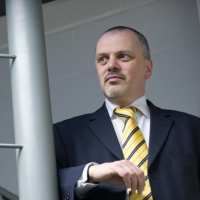 This 5-year, EPSRC-funded programme centres on whole-energy systems analysis; aiming to create a modelling tool that can better coordinate the complex interactions within the energy domain and indicate optimal forms of future, integrated, energy systems to policy makers. Using this approach to plan the UK’s future energy system has the potential to enable large cost savings in providing decarbonised energy, to ensure security of supply and compliance with emissions targets.
This 5-year, EPSRC-funded programme centres on whole-energy systems analysis; aiming to create a modelling tool that can better coordinate the complex interactions within the energy domain and indicate optimal forms of future, integrated, energy systems to policy makers. Using this approach to plan the UK’s future energy system has the potential to enable large cost savings in providing decarbonised energy, to ensure security of supply and compliance with emissions targets.
Community Water Management for a Liveable London (CAMELLIA), led by Professor Adrian Butler (Civil and Environmental Engineering)
Read more about the CAMELLIA project
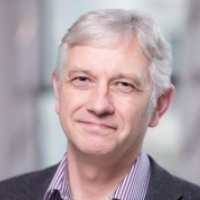 Focusing on London, CAMELLIA will bring together environmental, engineering, urban planning, socio-economic and organisational experts with institutional and industry stakeholders and citizens to co-develop a systems approach to urban water management, which will provide integrated solutions to enable required housing growth in London whilst sustainably managing water and environment in the city.
Focusing on London, CAMELLIA will bring together environmental, engineering, urban planning, socio-economic and organisational experts with institutional and industry stakeholders and citizens to co-develop a systems approach to urban water management, which will provide integrated solutions to enable required housing growth in London whilst sustainably managing water and environment in the city.
AI and machine learning for engineering applications: case studies
Premiere: PREdictive Modelling with QuantIfication of UncERtainty for MultiphasE Systems, EPSRC Programme Grant led by Professor Omar Matar (Chemical Engineering)
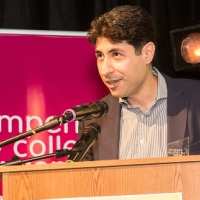 The grant will help scientists, engineers, and clinicians train algorithms to solve energy, manufacturing, and healthcare problems.
The grant will help scientists, engineers, and clinicians train algorithms to solve energy, manufacturing, and healthcare problems.
UKRI Centre for Doctoral Training in AI for Healthcare led by Dr Aldo Faisal (Computing)
Read more at the AI4Health website
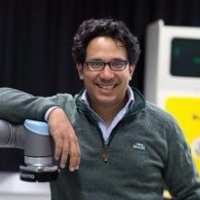 AI in healthcare needs and drives current AI research avenues such as interpretable AI, privacy-preserving learning, trust in AI, data-efficient learning and safety in autonomy. These are key due to the immediate impact on life and health for users depending on AI for healthcare support.
AI in healthcare needs and drives current AI research avenues such as interpretable AI, privacy-preserving learning, trust in AI, data-efficient learning and safety in autonomy. These are key due to the immediate impact on life and health for users depending on AI for healthcare support.
Affordable technologies for an ageing society: case studies
NIHR Research Professorship for Dr Jonathan Jeffers (Mechanical Engineering)
Read the news story: "Dr Jonathan Jeffers is first non-clinician to win NIHR Research Professorship"
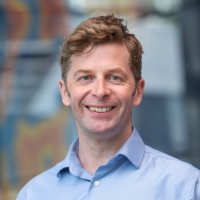 The professorship, worth £2m over five years, aims to deliver an improved range of treatments for patients with early stage arthritis.
The professorship, worth £2m over five years, aims to deliver an improved range of treatments for patients with early stage arthritis.
Chair in Emerging Technologies for Professor Yiannis Demiris (Electrical and Electronic Engineering)
Read the news story: "Imperial academics named Royal Academy of Engineering Chairs"
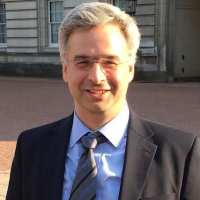 Professor Demiris will develop a world-leading innovative engineering research programme in personal assistive robots. His research will focus on the development, implementation and validation of artificial intelligence systems that will enable robots to intelligently assist those who need support, and adapt to meet the individual needs of a person.
Professor Demiris will develop a world-leading innovative engineering research programme in personal assistive robots. His research will focus on the development, implementation and validation of artificial intelligence systems that will enable robots to intelligently assist those who need support, and adapt to meet the individual needs of a person.
EPSRC Fellowship for Professor Claudia Clopath (Bioengineering) - Brain-inspired disinhihbitory learning rule for continual learning tasks in artificial neural networks
Read more details about the fellowship
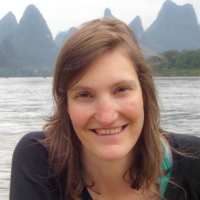 For this EPSRC Fellowship, we plan to develop a brain-inspired learning algorithm and test it in artificial neural networks solving a continual learning task.
For this EPSRC Fellowship, we plan to develop a brain-inspired learning algorithm and test it in artificial neural networks solving a continual learning task.
Research support
Discover the support available across the Faculty and College to help the academic community:
Support us
Help us continue our work in this area by donating to the College and directing your donation to the Faculty of Engineering.